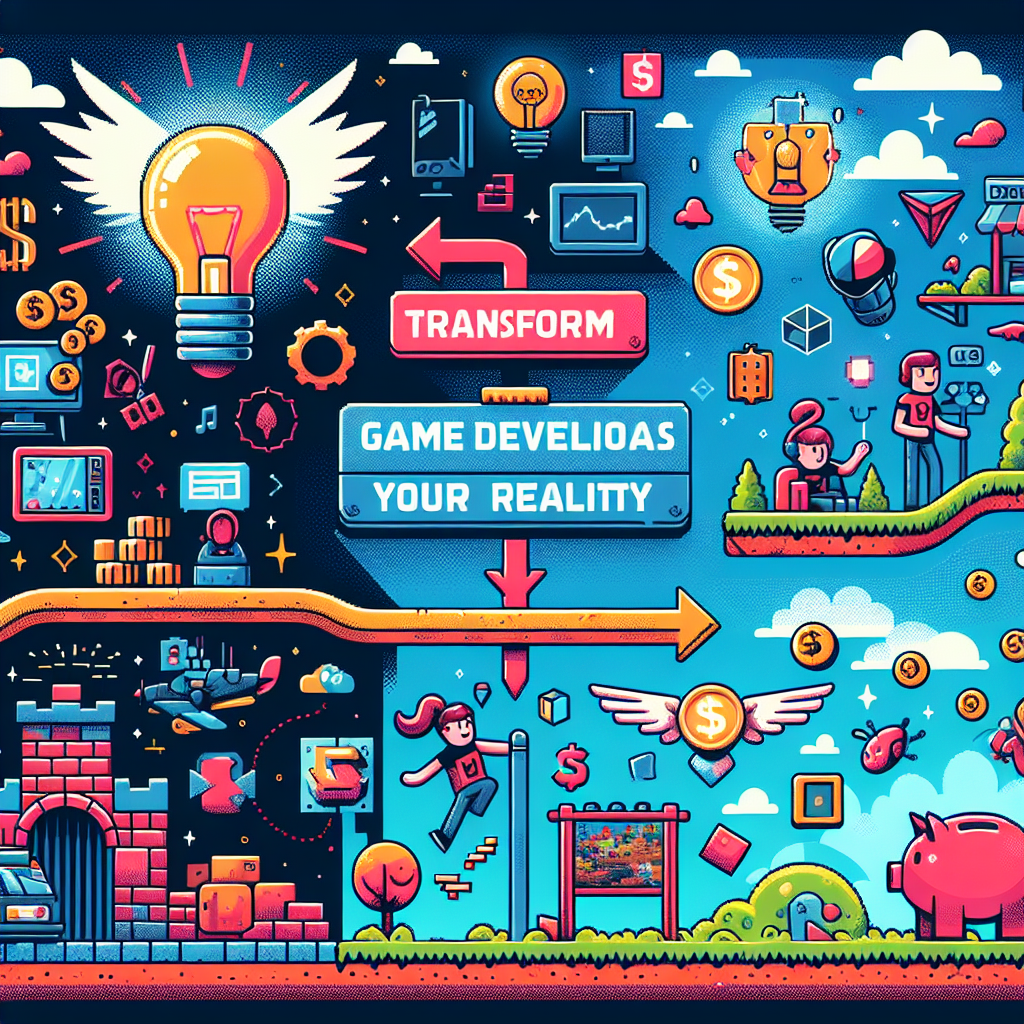Transform Your Ideas into Reality: Game Development Tutorials on a Budget
In the ever-evolving world of video games, the barrier to entry for aspiring developers has never been lower. With powerful tools accessible to all and a plethora of resources available online, turning your creative ideas into playable games is more achievable than ever—especially if you’re working with a tight budget. In this article, we’ll explore some affordable game development tutorials and resources that can help you transform your ideas into reality without breaking the bank.
Understanding the Basics of Game Development
Before diving into tutorials and tools, it’s essential to grasp the fundamental concepts of game development. At its core, game development involves several key components:
- Game Design – The vision for your game, including storytelling, mechanics, and art style.
- Programming – Writing the code that makes your game function.
- Art and Sound – Creating visuals and audio that enhance the gaming experience.
- Testing – Ensuring that the game runs smoothly and is enjoyable to play.
Familiarizing yourself with these aspects will help you understand what to focus on during your learning journey.
Choosing the Right Game Development Toolkit
There are several free and low-cost game engines available that cater to different needs. Popular options include:
-
Unity: A versatile game engine that supports both 2D and 3D game development. Unity has a free version called Unity Personal, suitable for individuals or small teams with a revenue of less than $100,000.
-
Unreal Engine: Known for its high-quality graphics, Unreal Engine is free to use, with royalties applied only when your game earns over $1 million.
- Godot: A completely open-source engine that is free to use and ideal for 2D and 3D game development. It has a user-friendly interface and a strong community.
Budget-Friendly Tutorial Resources
Once you’ve chosen a game engine, it’s time to start learning. Here are some budget-friendly resources that offer game development tutorials:
1. YouTube
YouTube is a treasure trove of free tutorials created by experienced developers. Some recommended channels include:
- Brackeys: Covers Unity with wonderful, beginner-friendly tutorials.
- Unreal Engine: The official channel provides comprehensive tutorials on using Unreal Engine.
- GDQuest: Ideal for Godot users, with tutorials focusing on game design and programming fundamentals.
2. Online Courses
Platforms like Udemy, Coursera, and Skillshare often have budget-friendly courses. Look for sales or discounts, as many courses can be purchased for as low as $10 to $20. Some popular courses include:
- Complete Unity Developer: Covers everything from beginner to advanced Unity game development.
- Unreal Engine 5: The Complete Beginner’s Course: A thorough introduction to developing with the latest iteration of Unreal Engine.
- Godot Game Development: Ideal for those wanting to dive into Godot-specific game creation.
3. Game Development Communities
Joining online communities can be incredibly beneficial for budding developers. Websites like Reddit, Stack Overflow, and GameDev.net provide platforms for questions, networking, and sharing resources. Engaging with these communities can lead you to free tutorials, open-source assets, and invaluable peer feedback.
4. Free Assets and Tools
A significant expense in game development comes from asset creation. Thankfully, there are numerous websites offering free resources:
- OpenGameArt: A vast collection of 2D and 3D art assets, including sprites, audio, and textures.
- FreeSound: A database of free sound effects and music tracks to enhance your game’s audio experience.
- Kenney.nl: Offers free game assets and templates that can be used across various game engines.
Building a Prototype
With tutorials under your belt and resources at your disposal, it’s time to create a prototype of your game. Focus on implementing core mechanics and testing gameplay. Remember that iteration is key; seek feedback from trusted friends or online communities and be willing to adapt your design based on their input.
Monetizing Your Game
Once your game is developed, consider ways to monetize it while keeping it accessible to players. Options include:
- Publishing on free platforms: Consider platforms like Itch.io or Game Jolt for indie developers to showcase their games.
- Crowdfunding: Platforms like Kickstarter or Indiegogo can help finance your project before its release.
- In-game purchases or ads: Implementing optional purchases or ad placements can support your game’s ongoing development and maintenance.
Conclusion
Game development on a budget is not only possible but also an exciting journey filled with creativity and innovation. By utilizing cost-effective resources and tutorials, aspiring developers can transform their ideas into functioning games that resonate with players. Remember, the key is to start small, iterate, and most importantly, have fun with the process. So grab your computer, unleash your imagination, and take the first step towards creating the game of your dreams!




